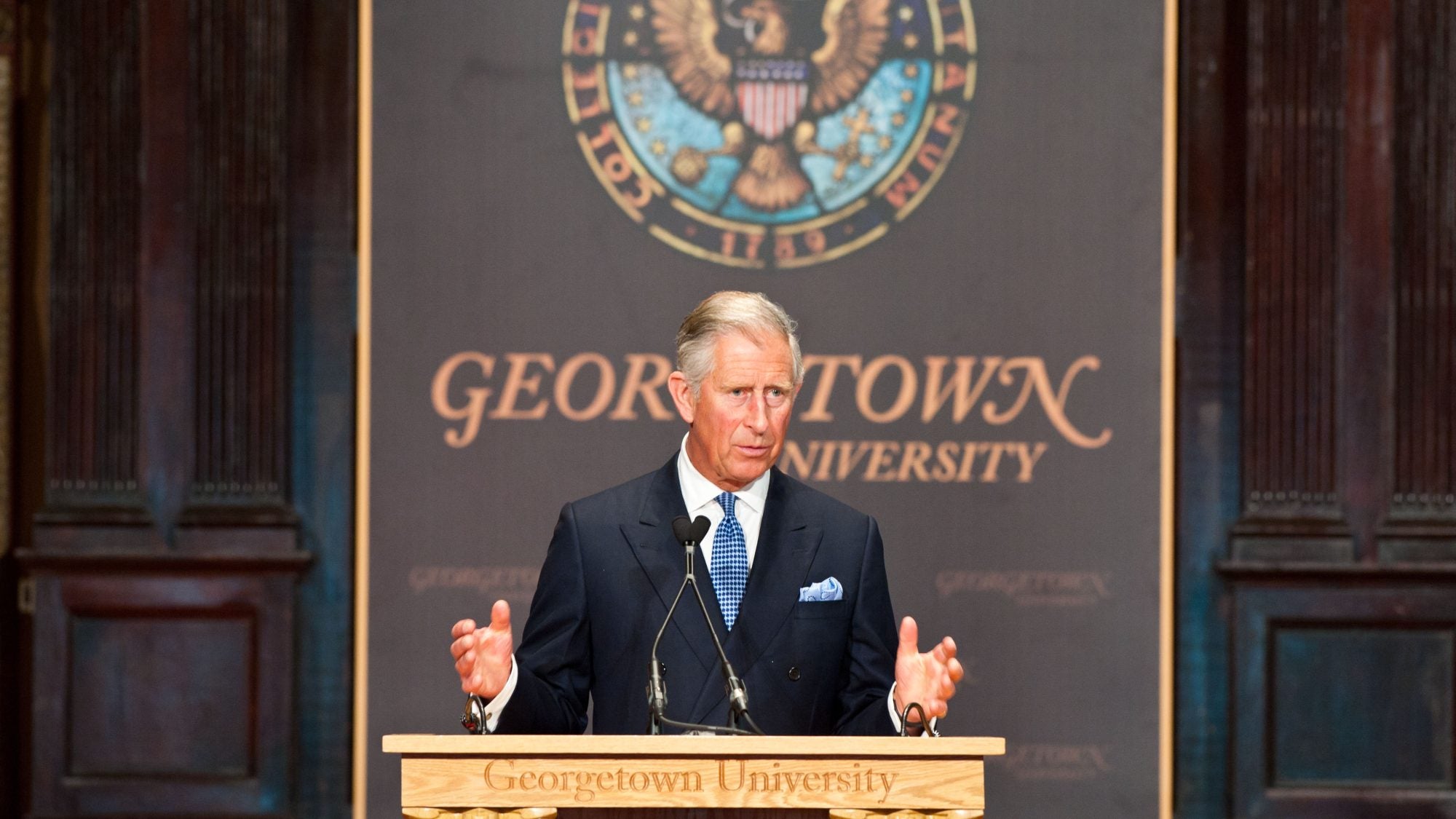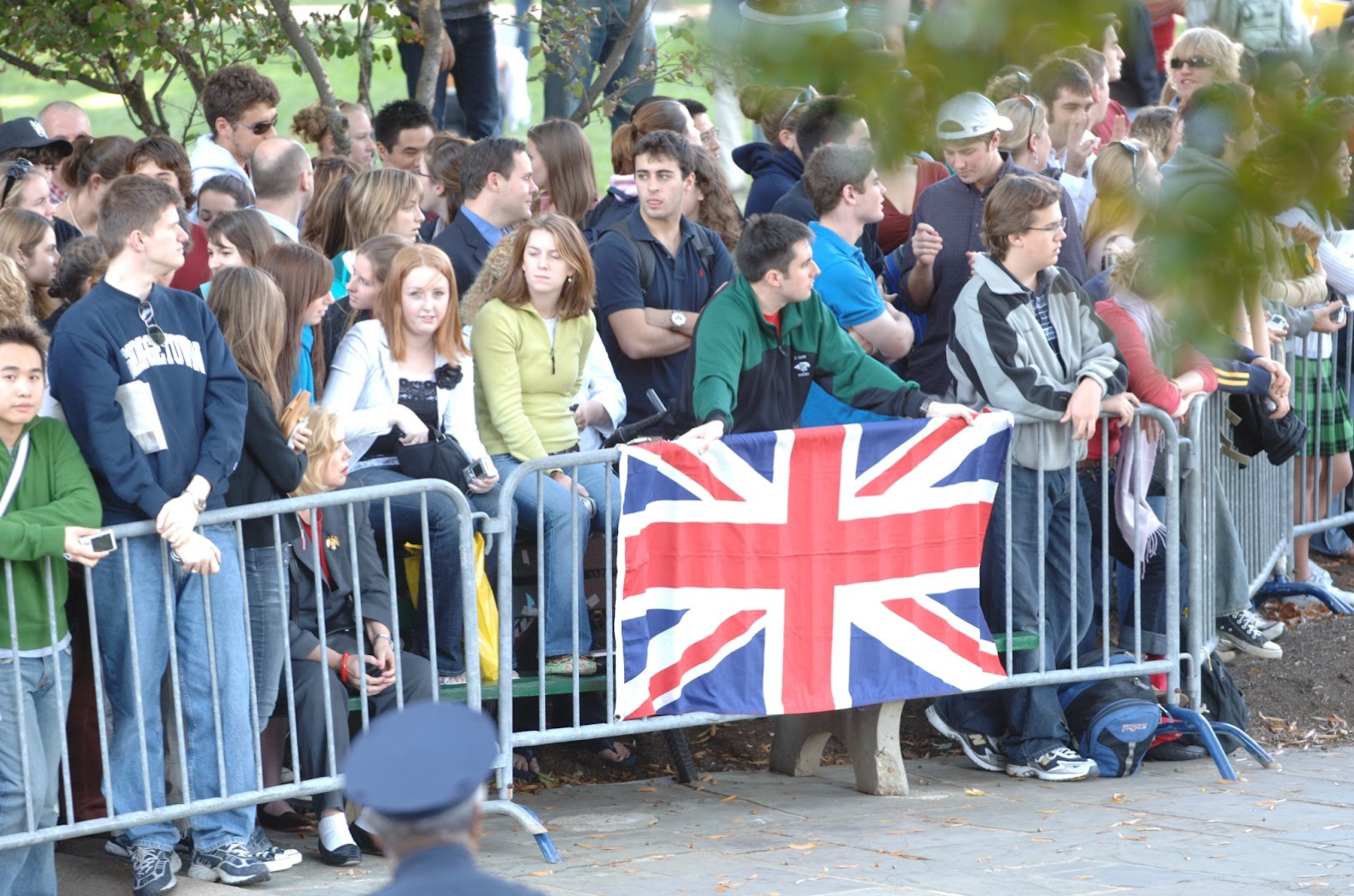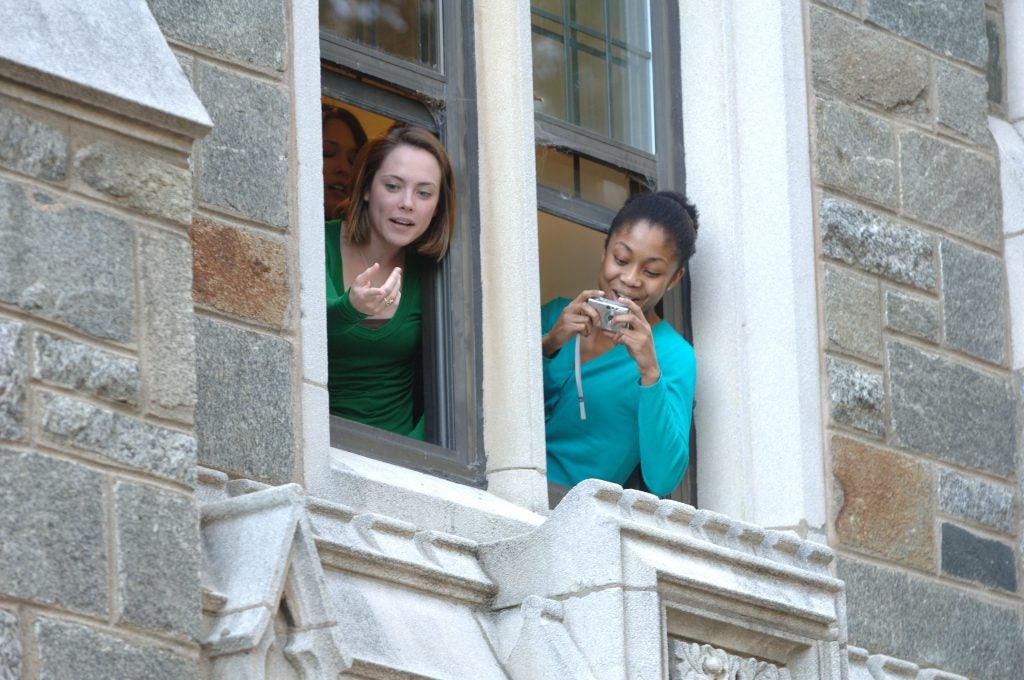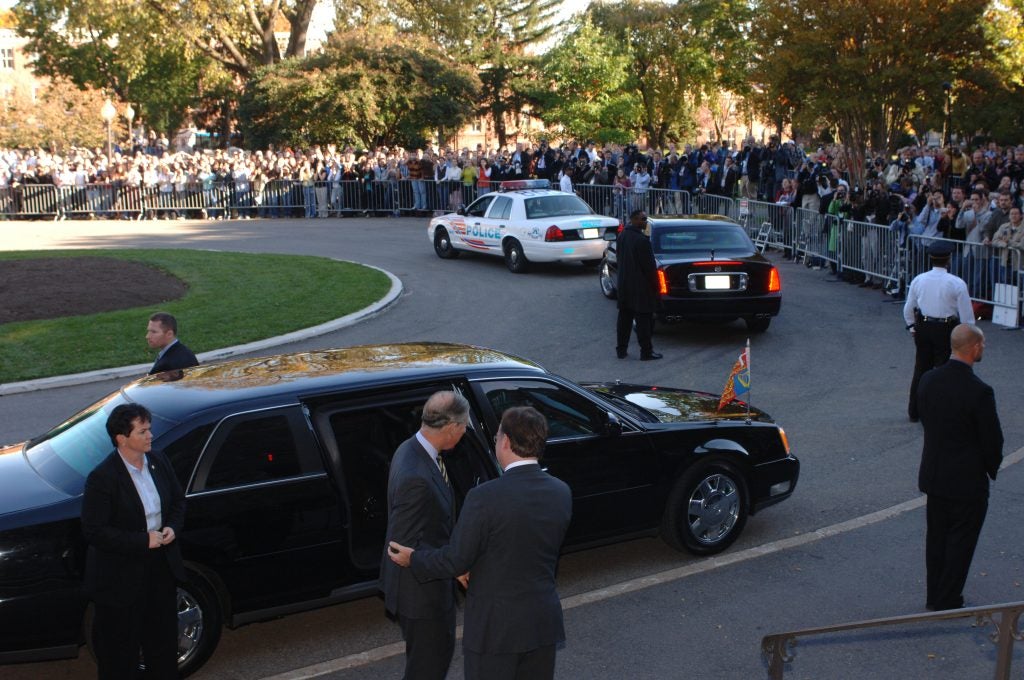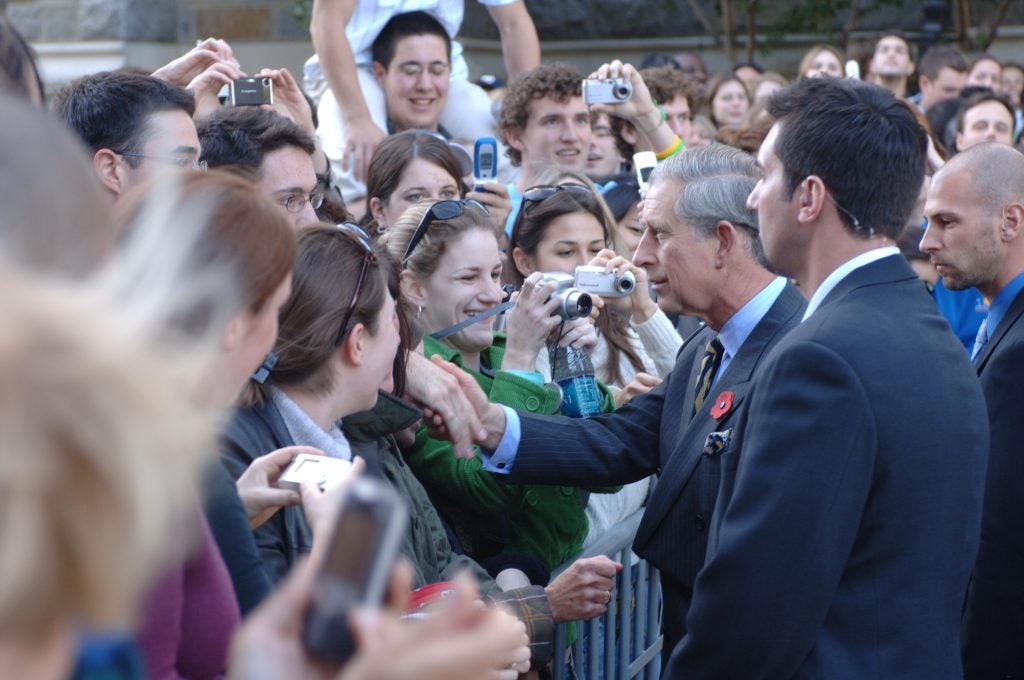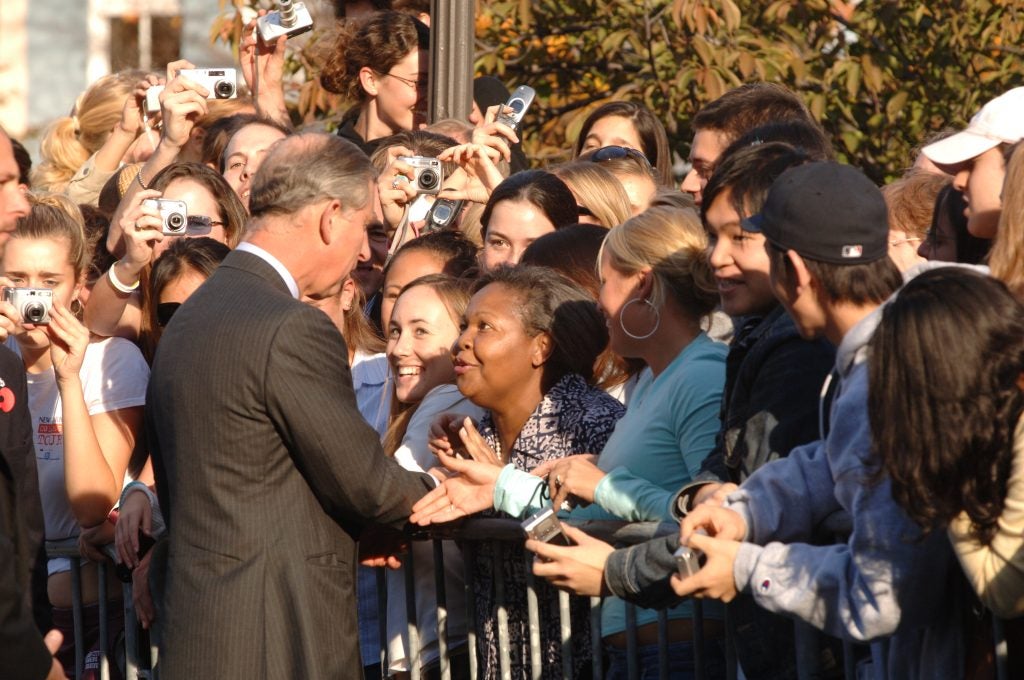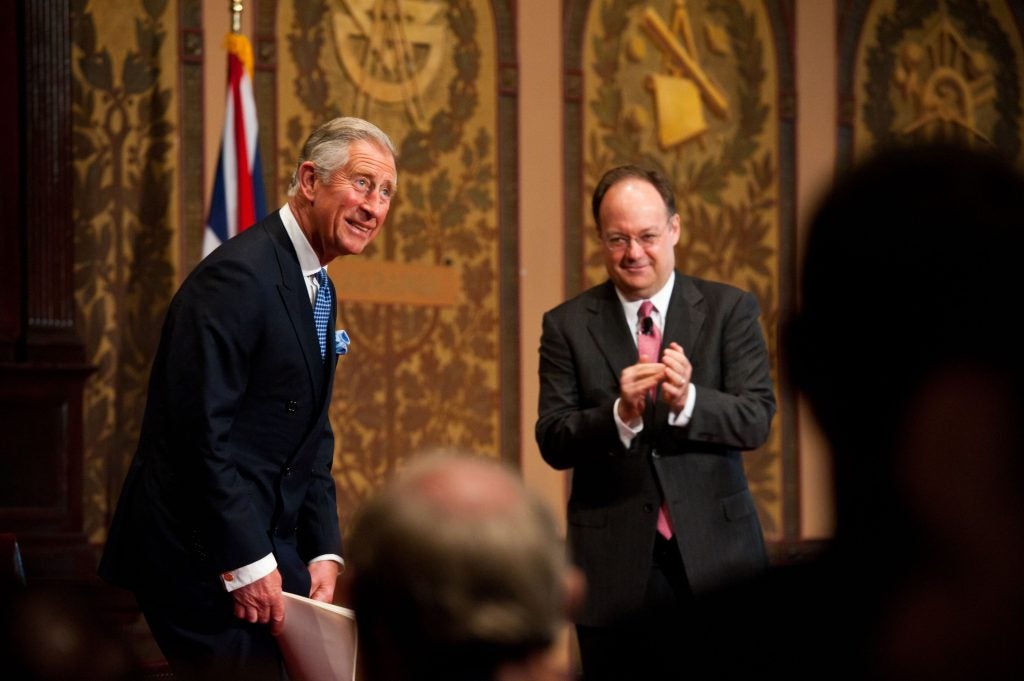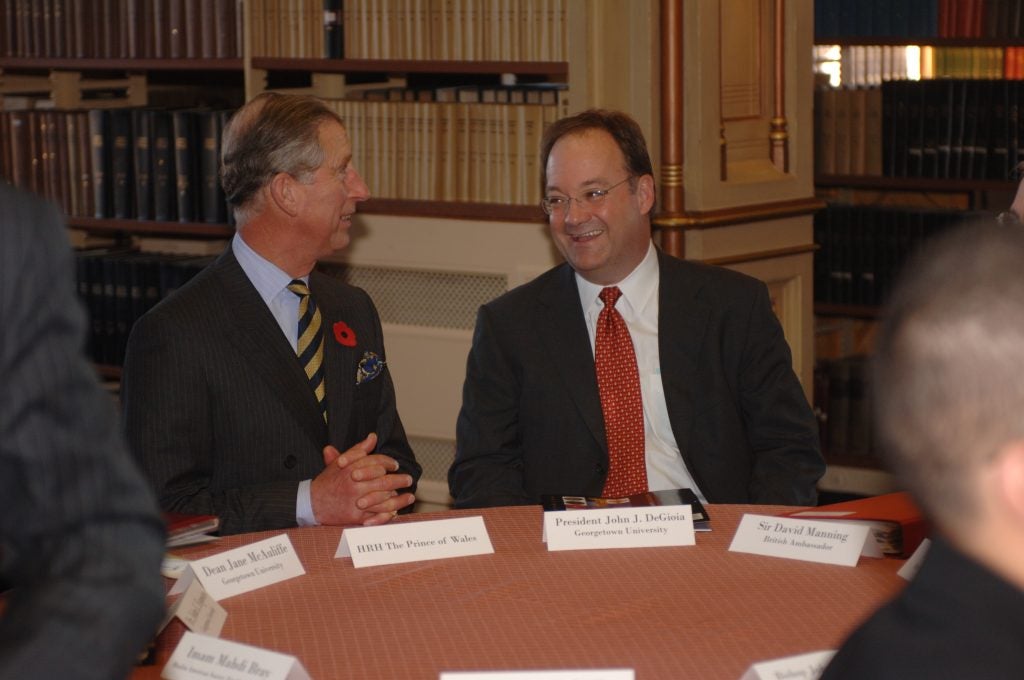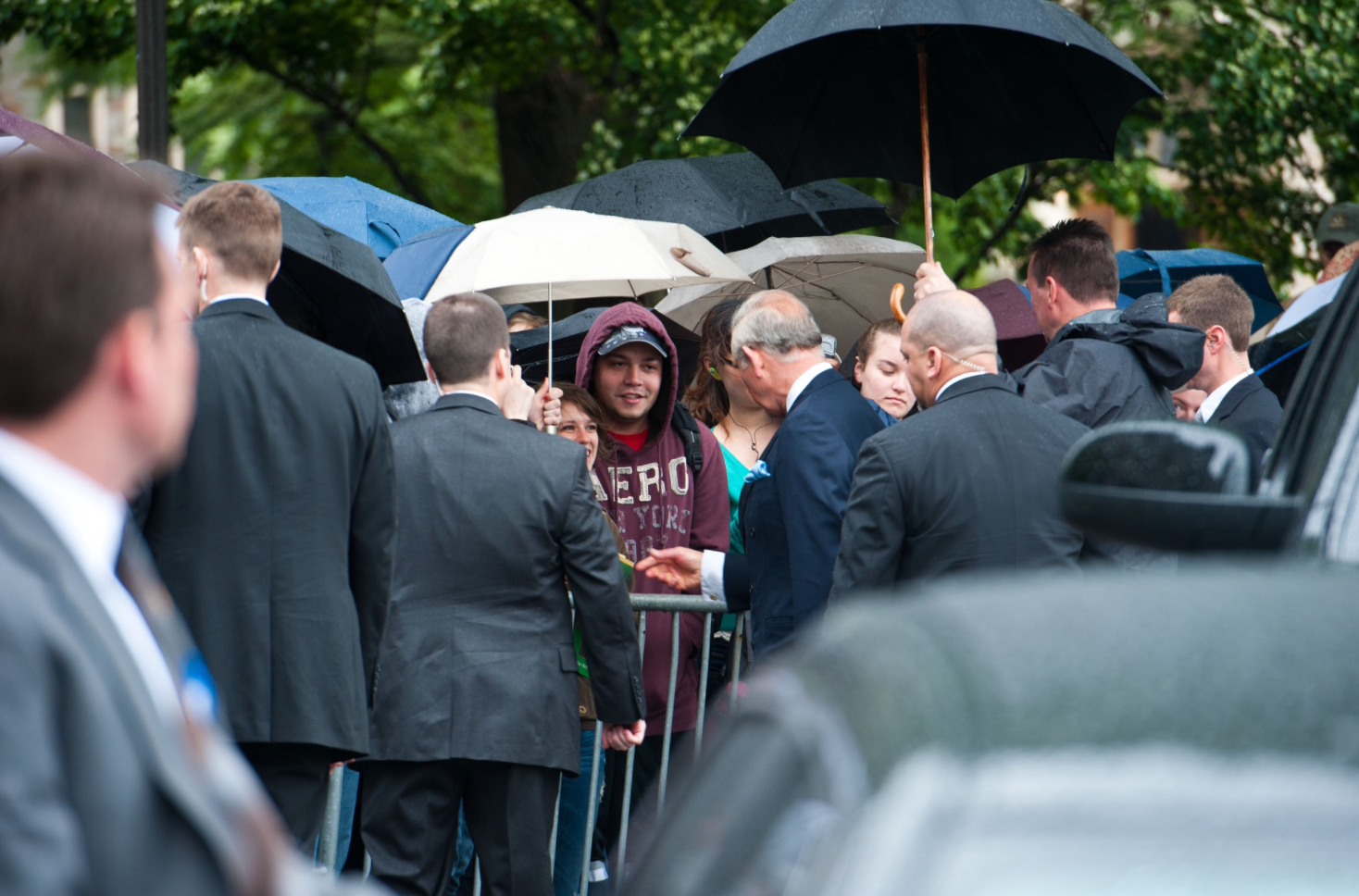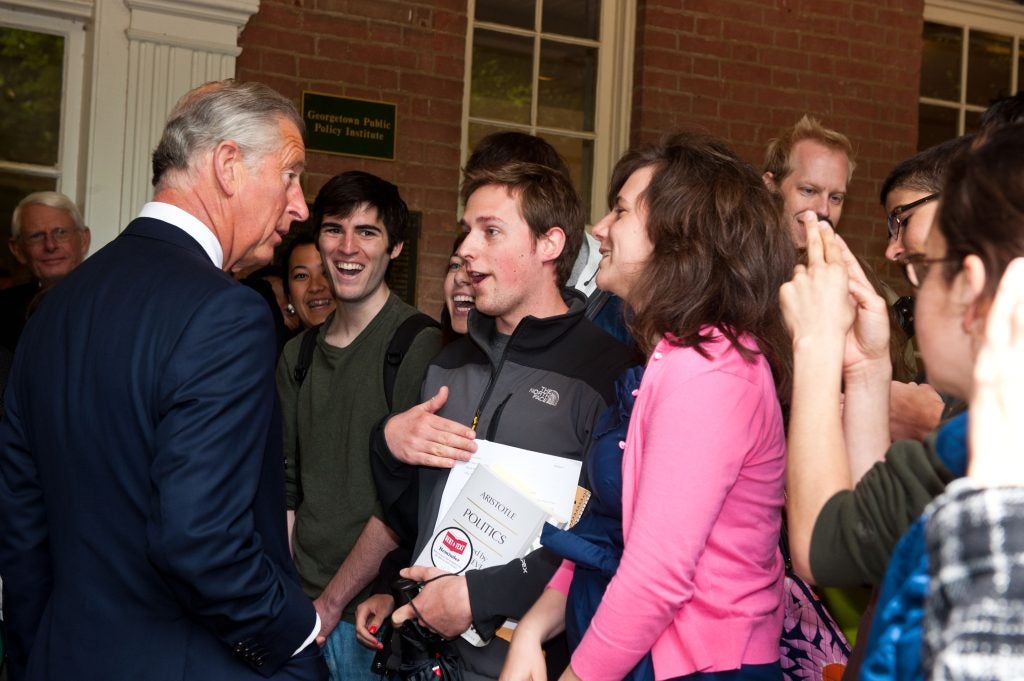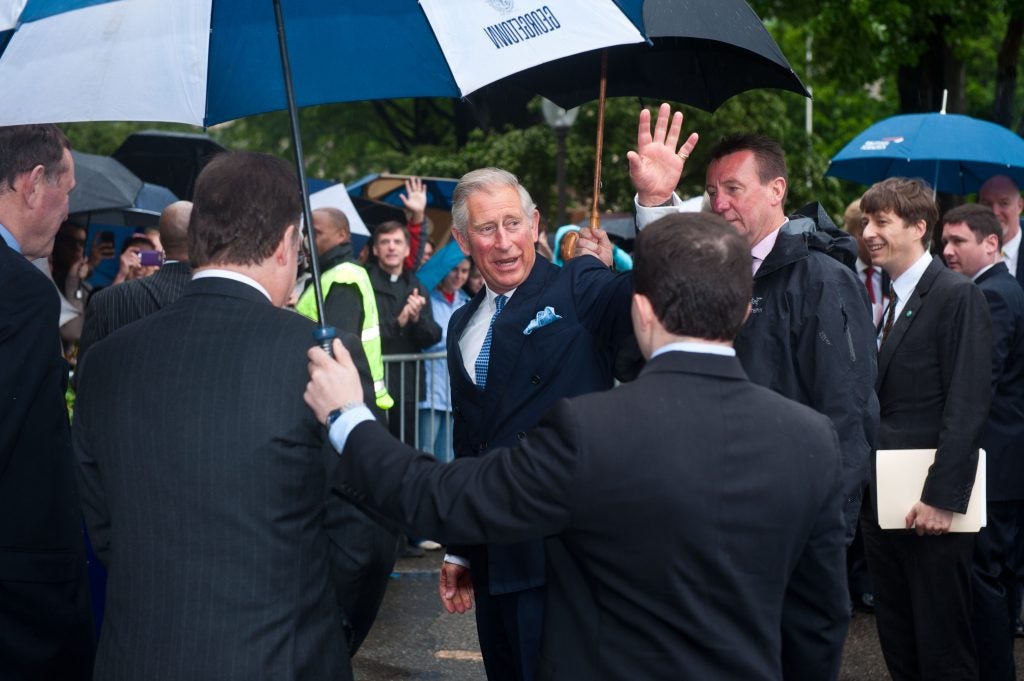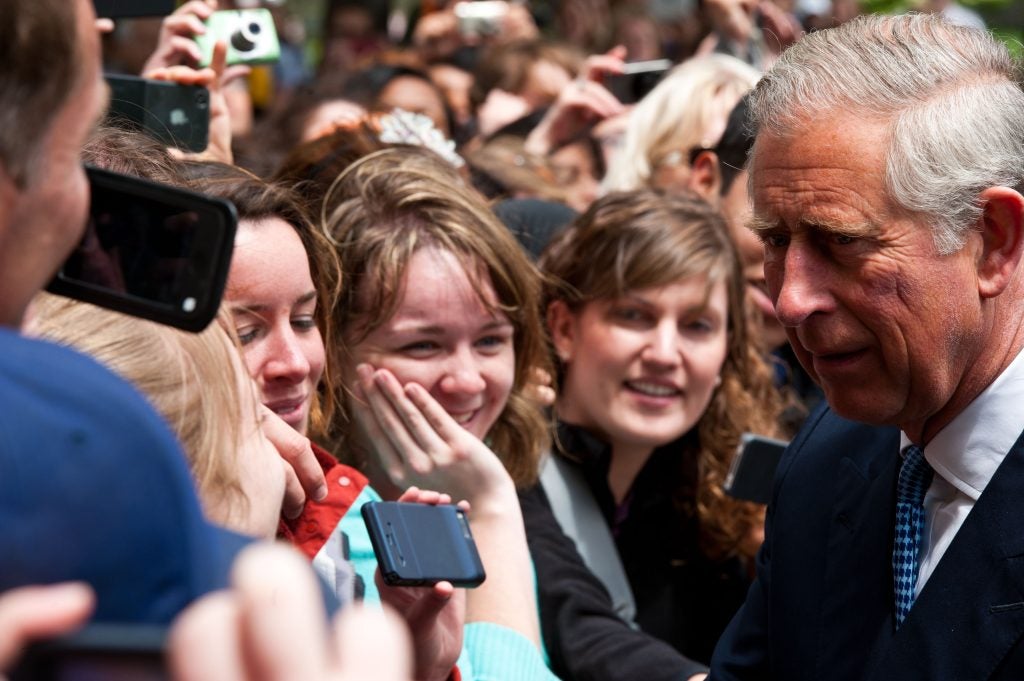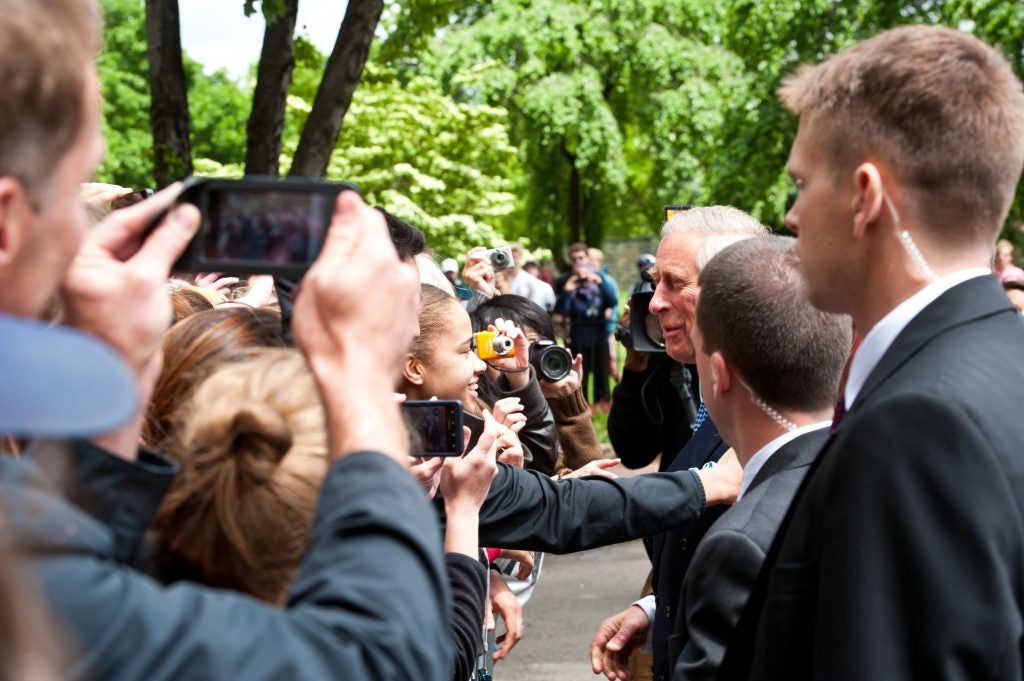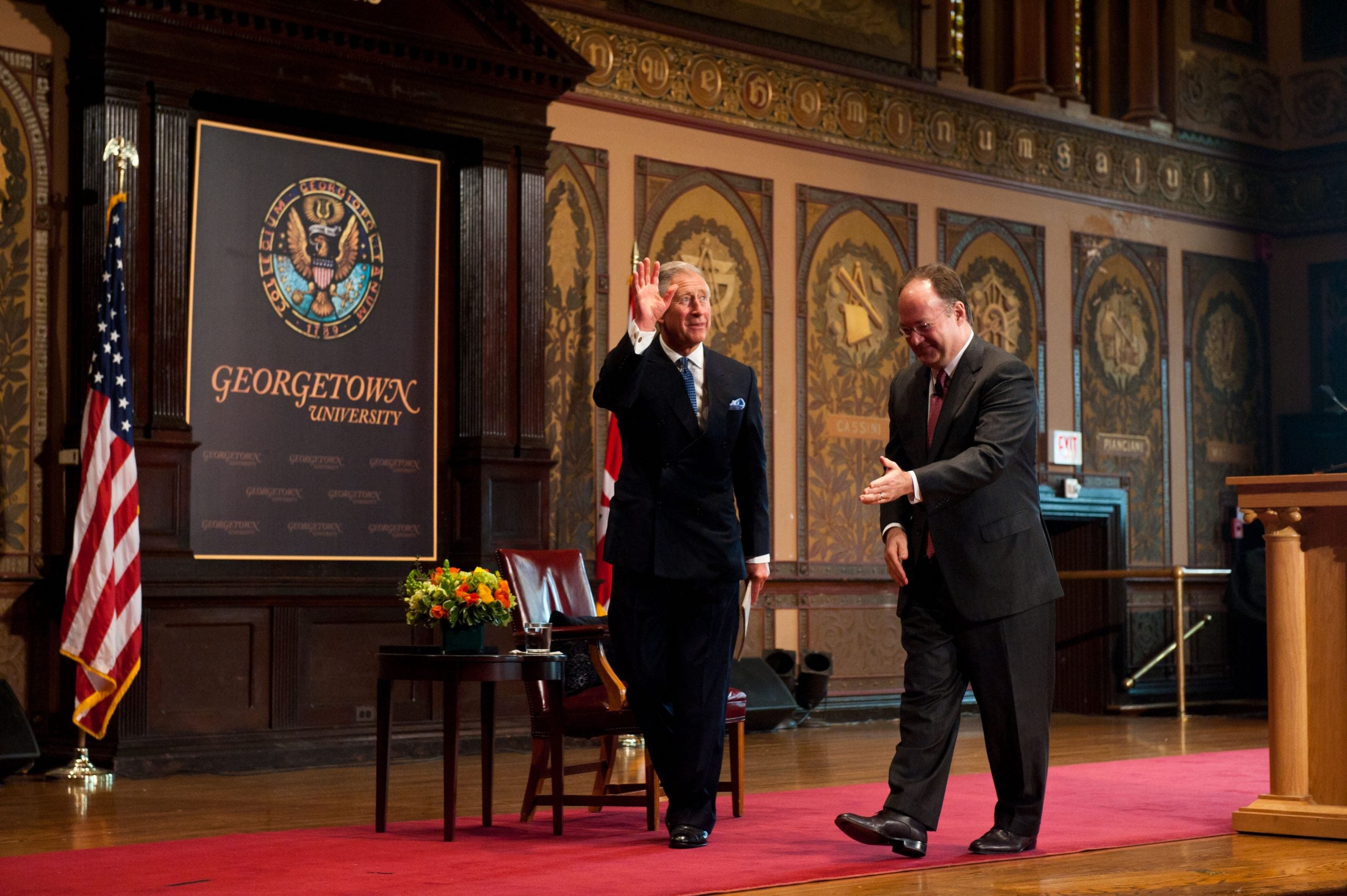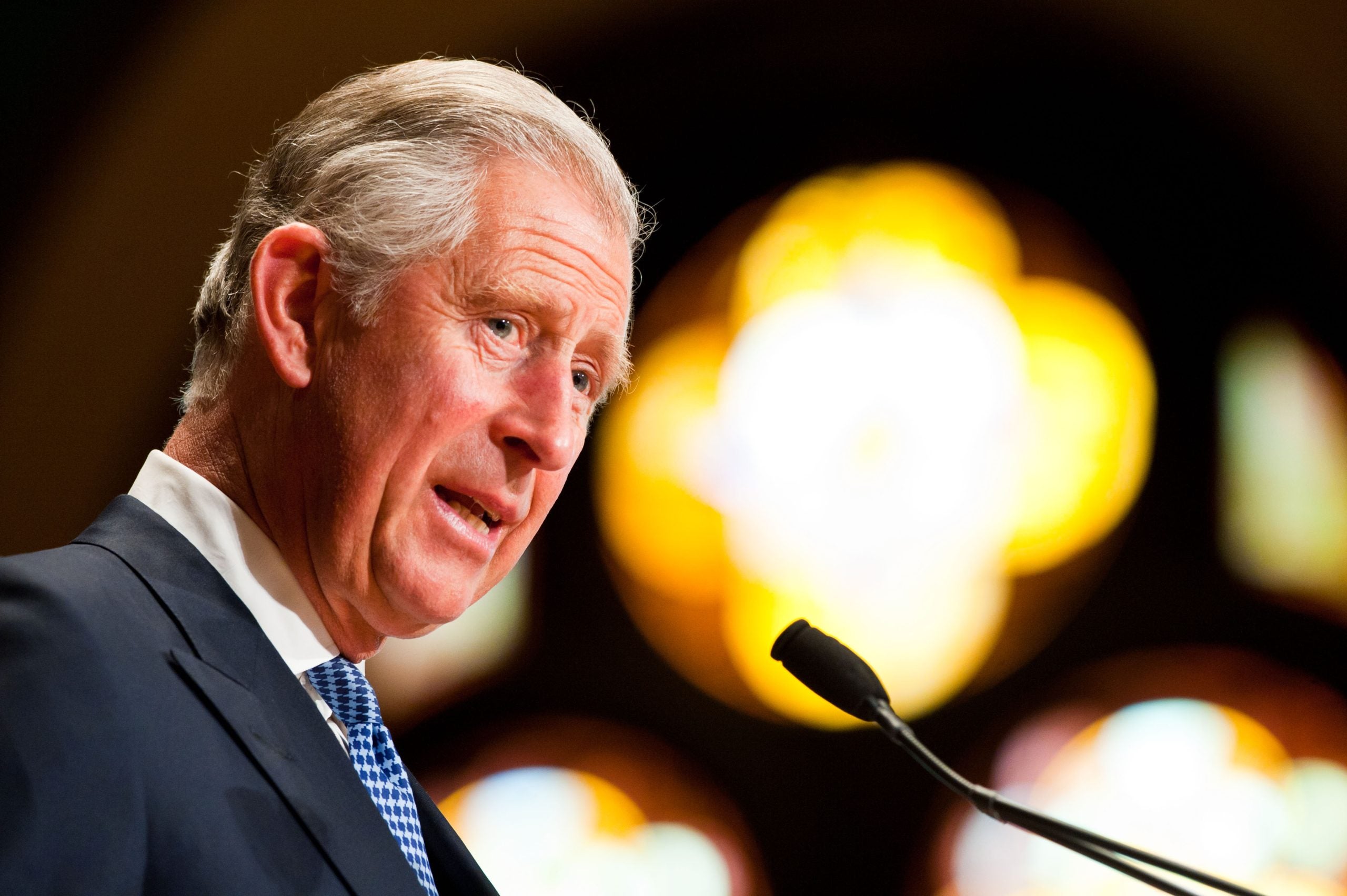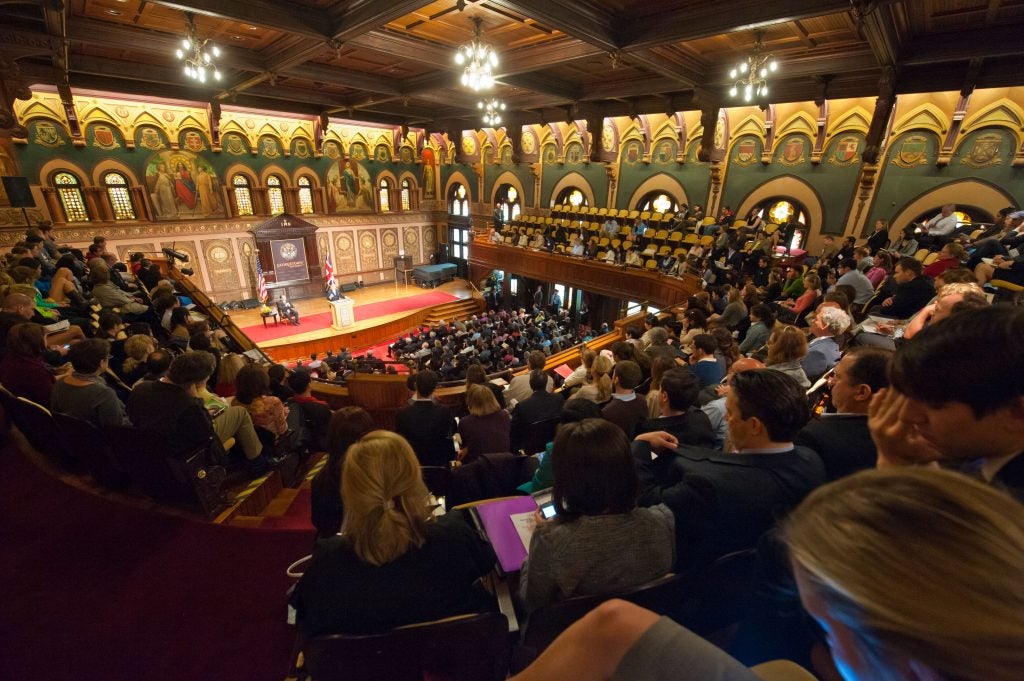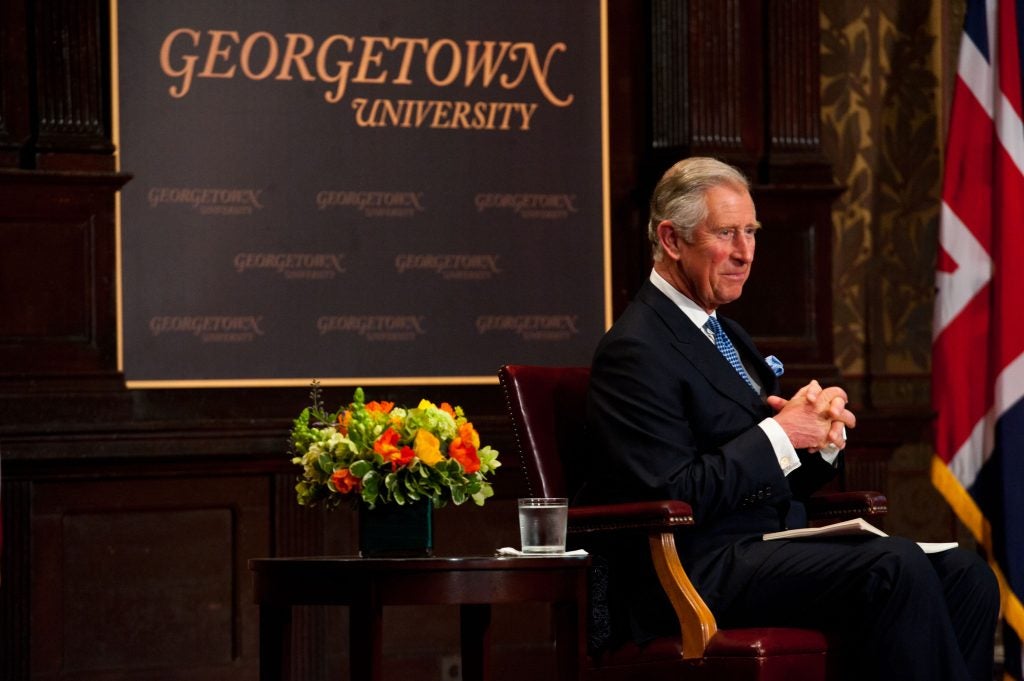On May 6, Charles III will be crowned king of England at a coronation ceremony at Westminster Abbey.
Before assuming this role, King Charles III made several trips to the United States, two of which included visits to the Hilltop. In celebration of his coronation, take a look back at the time Charles spent at Georgetown in 2005 and 2011.
King Charles on Faith and Social Responsibility
In 2005, Charles made his first diplomatic visit to the U.S. in more than two decades. During his trip, he visited Georgetown’s campus and participated in a seminar on faith and social responsibility in Riggs Library. More than 1,000 students greeted him when he arrived, lining up behind gates in Healy Circle.
